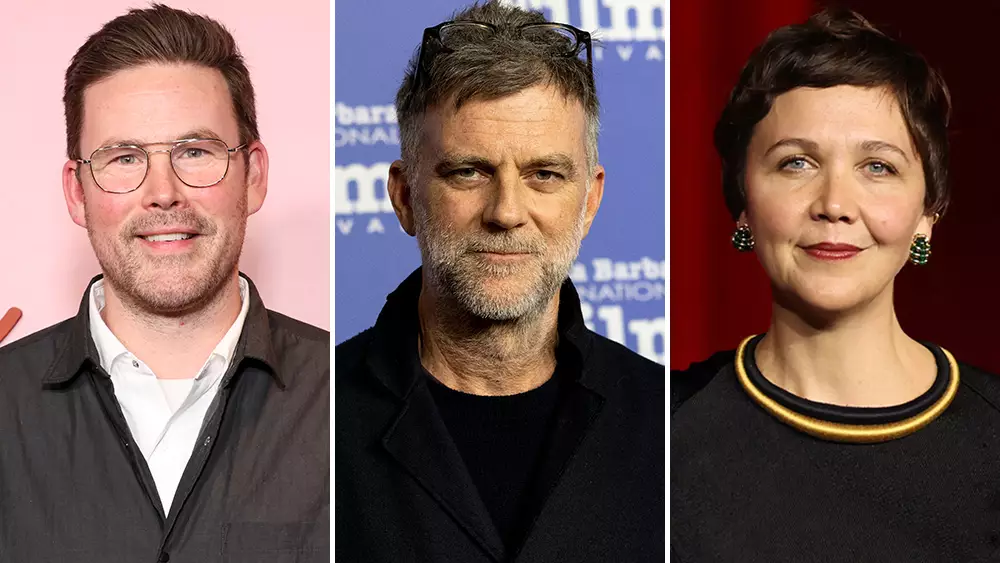In an era of shifting release dates and evolving audience expectations, Warner Bros has deftly maneuvered its film schedule to ensure a financially sound year ahead. The recent adjustments, made just before CinemaCon, reveal not only a strategic positioning of their lineup but an acute understanding of the industry’s current climate. As we witness a resurgence in auteur-driven cinema, with four films crossing the $100 million mark, Warner Bros’ management, spearheaded by Jeff Goldstein, is proactively responding to the unpredictable landscape of box office returns.
The controversies surrounding Bong Joon Ho’s *Mickey 17* emphasize that even highly anticipated projects can falter. Thus, Warner Bros’ move to hold onto fiscal prudence while positioning future blockbusters signals their intent to remain relevant in a competitive market. Audiences are salivating for unique narratives, while studios must balance the allure of big names with the unpredictability of viewer preferences. Warner Bros appears to be striking that delicate balance with their latest scheduling tactics.
Genre Films: The Key to Recovery
Warner’s slating of Zach Cregger’s *Weapons* for an August debut constitutes a remarkable gamble, exemplifying bold faith in genre films as vehicles of success. This film, initially intended for a less favorable release in January 2026, showcases the studio’s commitment to genre storytelling that resonates with audiences. The decision to uplift it into a more lucrative summer slot is a testament to their confidence in its potential. Competing with Disney’s *Freakier Friday* provides an intriguing matchup, reflecting a broader strategy to reclaim market relevance.
This shift sends a clear message: genre films are not just a side dish in a cinematic feast but the main course. They drive attendance and revenue, and Warner is smart to lean into this burgeoning appetite. With the recent boom in horror and thrilling narratives, the timing is ripe for this type of cinematic experience, especially given Cregger’s previous success with *Barbarian.*
Imax: The Crown Jewel of Film Distribution
Central to Warner Bros’ release adjustments is the control of Imax bookings, regarded as a golden ticket for major studios. The strategic planning around these coveted screens illustrates a smart business tactic that other studios would do well to emulate. Imax not only elevates a film’s status but also significantly enhances its box office potential. By aligning key releases like *One Battle After Another* and *Weapons* with Imax capabilities, Warner Bros is creating a theatrical experience that draws fans into theaters rather than streaming on their sofas.
The competition for Imax screens underscores a greater trend: filmmakers are increasingly making movies designed to be experienced on the biggest screens possible. Warner’s understanding of this dynamic allows it to maintain a competitive edge, ensuring that its audience is treated to a genuinely grand spectacle. If other studios fail to recognize the base-level expectations audiences now have regarding cinematic quality, they risk losing significant market share.
Pushing Boundaries with Dynamic Programming
With film festivals serving as launching pads for nominations and recognition, the question remains whether Warner Bros will capitalize on such platforms for *One Battle After Another*. While director Paul Thomas Anderson often sidesteps film festivals, his historical collaboration with Warner Bros gives credence to the potential of this release receiving significant exposure via such events. The underlying pressure for studios to gain accolades speaks to an industry still very much hinged on prestige, alongside profitability.
In such a competitive environment, the releases of *The Cat in the Hat* and *Flowervale Street* represent Warner Bros’ willingness to experiment with timing. These releases position their animated features against established franchises, an audacious move aligning with their strategy to draw a wider audience. By establishing these timelines, Warner is not just vying for box office supremacy but is also in a race towards cultural relevance.
The Long Game: Insight into Warner Bros’ Future
Warner Bros’ 2025-2026 lineup appears ambitious, featuring a cascading wave of untitled projects and notable reboots. The lack of specificity in several titles can be perceived as either a risk or a calculated decision to build anticipation. Projects like Denis Villeneuve’s rumored *Dune 3* presidency illuminates a focus on cinematic universes, allowing fans to remain intrinsically engaged with franchises they love.
This multifaceted strategy indicates that Warner Bros recognizes the importance of evolving their model in an era defined by rapid change in viewer behavior. Tailoring film releases to capitalize on both existing franchises and fresh storytelling demonstrates a maturity in thought that will serve them well moving forward.
Executing a nuanced balance of brand identity, strategic timing, and genre diversity, Warner Bros is unmistakably positioning itself not merely to survive but to thrive in a transforming industry landscape. Their decisions resonate with a confidence that embraces innovation, urges creativity, and seeks to establish a legacy built on both success and artistic integrity.

